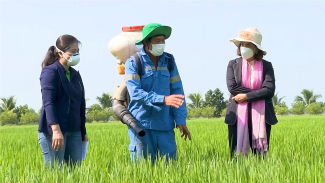FRESH PRODUCE VALUE CHAINS IN KENYA: CHALLENGES AND PROSPECTS FOR ENHANCED MARKET ACCESS AND SMALLHOLDER INCLUSION
Contract farming is one potential mechanism that smallholder farmers in developing countries can use to participate in and benefit from domestic and global value chains (Okello and Swinton 2007; Barrett et al. 2012; Minot and Sawyer 2016; Ruben 2017; Ton et al. 2017). Linking smallholder farmers more directly with national and global consumers should increase both the demand and producer prices for their fresh produce. Increased access to and participation in such value chains increases farm income earned by smallholders.
